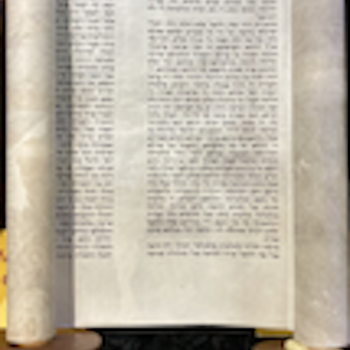Yesterday, I posted about “your kingdom come” in the Lord’s Prayer in Matthew 6.9-13 and Luke 11.2-4. The Aramaic word maranatha is similar. Here is an excerpt from my book, The Restitution of Jesus Christ, about maranatha:
The Apostle Paul uses the Aramaic word maranatha only in 1 Corinthians 16.22.[1] This use indicates that Greek-speaking Christians borrowed this transliterated word from the early Aramaic-speaking Jewish Christians of Judea and Galilee and made it a part of their own liturgy. Its meaning is complex.[2] If parsed marana tha, it is a request and means “our Lord, come;” but if parsed maran atha, it is a confession and means “our Lord has come.”
Some scholars have thought that this early Christian use of maranatha in mostly a liturgical setting indicates that its meaning is to be found in its application to the Eucharist (Lord’s Supper). In that case, it could mean either of the above. However, it is more likely that Paul mostly employed it eschatologically, i.e., “our Lord, come,” to indicate the Christians’ hopeful, expectant attitude concerning Jesus’ promised return to earth in glory. Accordingly, some New Testament scholars, not just traditionalists, think that maranatha in 1 Corinthians 16.22 is a prayer which verifies Paul’s sanction of praying to Jesus,[3] thus asking Him to return soon. But this concept conflicts with subordinationist elements in New Testament eschatology and Christology as follows: (1) Paul’s teaching that only the Father will “bring about” Christ’s return (1 Timothy 6.14-15) and Jesus’ two revelations that (2) He did not know the time of His return (Matthew 24.36/Mark 13.32>) and (3) only the Father decides the timing of such events (Acts 1.7). Also, Daniel calls “the end” of the age “the appointed time,”[4] meaning that God long ago “decreed” it (Daniel 9.27), so that it is fixed and cannot be changed. So, this Christian use of maranatha likely expresses merely the heart’s desire for Jesus to return rather than it being an actual prayer request for Him to return soon. Such a view accords with “Come, Lord Jesus,” in Revelation 22.20, which may represent the translation of maranatha. Many scholars compare it to the Jews’ Kaddish prayer about Messiah, “May he reveal himself speedily in our days.”
Geza Vermes and others trace this early Christian use of maranatha back to Jesus’ words in His so-called Lord’s Prayer, “Thy kingdom come” (Matthew 6.10/Luke 11.2).[5] This is a prayer directed to “Our Father,” not Jesus. Even if maranatha represents a prayer asking Jesus to return, it would be the same as praying to the Father, “Thy kingdom come,” since Jesus is the embodiment of the kingdom of God. And this connection may suggest that the early church employed maranatha liturgically, perhaps at the Eucharist, but only in the sense of asking Jesus to be in their midst, which would have been synonymous with requesting the presence of the Holy Spirit.
[1] Maranatha also appears in Didache 10.6.
[2] Gordon D. Fee, The First Epistle to the Corinthians, in NICNT (1987), 838.
[3] Oscar Cullmann, Christology, 209-16; Larry W. Hurtado, One God, One Lord, 106.
[4] Daniel 9.26; 11.27, 29, 35, 40; 12.9, 13.
[5] G. Vermes, The Changing Faces of Jesus, 201.












